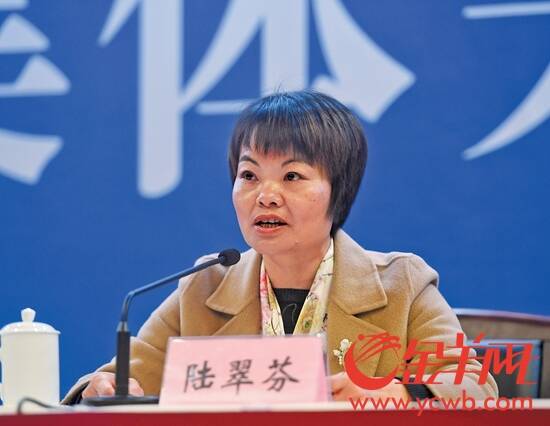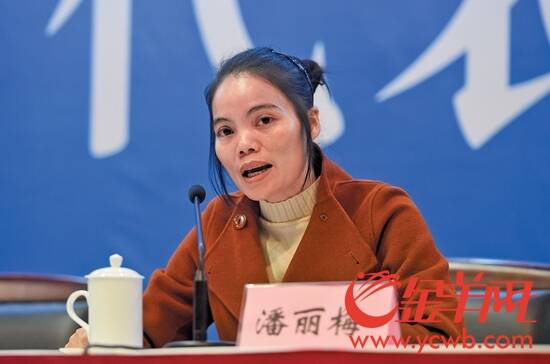Road test and sailing: a new trend of automatic driving of automobile enterprises from the auto show
[News] With the gradual opening of road test, can autonomous driving be far behind? Not long ago, the country issued the specifications of road test related to intelligent driving, and Shanghai, Fujian, Chongqing, Shenzhen, Changchun, Changsha and other places have also issued relevant road test rules one after another, but only Beijing, Shanghai and Chongqing issued the number plate for road test. Among them, Shanghai was the earliest. On March 1 this year, Shanghai issued a road test number plate to SAIC. Chongqing has the most. On April 18th, Chongqing issued license plates to seven companies: Baidu, Guangzhou Automobile, Geely and Beiqi. Beijing’s latest, during the auto show, Beijing just announced that Weilai won the number plate (Beijing had previously issued a number plate to Baidu). Taking advantage of the east wind, let’s take a look at the progress of these car companies that have obtained number plates in the field of intelligent driving.

Beiqi New Energy: Releasing "Darwin System"
BAIC New Energy, which just got the number plate, released the vehicle artificial intelligence system "Darwin" at this auto show. British biologist Darwin’s theory of evolution has a basic view: evolution has no direction and no end. Correspondingly, the Darwin system can also realize continuous self-learning and growth. In the future, BAIC New Energy will carry up to 546 chips on a bicycle to handle data requirements, and upgrade the OTA (over-the-air program) of the whole vehicle.
As the pioneering work of "Darwin System", BAIC new energy EU5 was officially listed at Beijing Auto Show. The vehicle model integrates 10 intelligent driving assistance devices and technologies, including lane departure warning, pedestrian collision warning, vehicle collision warning, automatic emergency braking and other auxiliary driving technologies. With EMD 3.0 intelligent electric drive technology, it can accurately monitor driving safety and correct the path in real time.

BAIC New Energy mainly cooperates with Baidu, Bosch and Harman in the field of automatic driving to realize the research and development of intelligent driving functions including ADAS intelligent assisted driving system, L3 automatic driving, intelligent cockpit monitoring and parking service. Among them, the intelligent cockpit system with multiple application scenarios will be fully equipped on the models listed in 2018-2020.
The road to autonomous driving BAIC New Energy will also rely on the strength of BAIC Group. According to the plan, BAIC Group’s vehicles will be Baidu’s open platform, and L3 self-driving vehicles will be mass-produced around 2019, and L4 self-driving vehicles will be mass-produced around 2021. The driverless plan of BAIC New Energy may also be promoted according to this.
Weilai: the only car company that got the number plates of two places.
Consistent with the new energy qualification review, the choice of intelligent driving license plate is also more inclined to traditional car companies at present. Among the eight car companies that have obtained road test license plates in various provinces and cities, only Weilai Automobile is a new car company, and it is also the only passenger car company that has obtained license plates in Beijing and Shanghai.
At this auto show, Weilai booth was particularly popular. Apart from the car itself, the on-board artificial intelligence system "NOMI" is also eye-catching. Based on the powerful on-board computing capability and cloud computing platform, it integrates a voice interaction system and an intelligent emotion engine, which can talk with people, automatically adjust the temperature inside the car, automatically purify the air inside the car, and help car owners take selfies.

As an emerging car company, Weilai has been committed to intelligent driving research and development. In the ES8, the first model of Weilai released at the end of 2017, the automatic assisted driving system NIO was equipped. In the scheme of perception system, there is a three-eye camera, four panoramic cameras, five millimeter-wave radars, 12 ultrasonic sensors and a driving state detection camera. It can achieve more than 20 core capabilities such as adaptive cruise, high-speed automatic assisted driving, congestion automatic driving, automatic road maintenance, parking assistance, automatic parking, active vehicle call and fatigue warning.
Weilai mainly cooperates with leye, NVIDIA and NXP in the field of intelligent driving. At present, a large number of automatic driving function tests have been completed, including simulation tests and closed road tests. At the same time, Weilai launched the open road test plan in California, Beijing, China and Shanghai. According to the plan, Weilai will release vehicles with L4-level automatic driving capability in 2020.
Saic: zebra intelligent system welcomes version 3.0.
As a car company that proposed "Internet car" earlier, on the eve of this auto show, the Marvel X, a brand-new pure electric vehicle of SAIC, officially made its debut. It is reported that the car is equipped with AR augmented reality technology, version 3.0 Internet car zebra intelligent system, all-round intelligent welcome system, as well as wireless charging, automatic parking and parking functions.

SAIC has a long history in the field of intelligent driving. When it was launched in 2015, it already had intelligent driving assistance function. When the speed is 60-120 kilometers per hour, it can realize automatic cruising, automatic car following, lane keeping, lane changing and autonomous overtaking. In the field of new energy, both Roewe ERX5 and Roewe ERX 5 are equipped with zebra Zhixing system, which can realize the above intelligent driving assistance function. Not long before the auto show, SAIC announced that the upgrade of Zebra Zhixing System 2.0 on Roewe ERX5 will be started, and users can enjoy the OTA upgrade service for free. At that time, users will receive download prompts and updates, including maps, voice and HMI. All interfaces will be updated.
In the field of intelligence, SAIC mainly cooperates with Ali. As early as July 2014, the two sides signed a strategic cooperation agreement and formally established Zebra Zhixing Company, which is committed to providing the overall solution of Internet vehicles for the entire automobile industry. At present, it has been applied to a number of SAIC models. At the same time, SAIC also obtained California’s autopilot test license in 2017 to conduct autopilot road test work in the United States.
Chang ‘an: L2 technology will be launched.
Since the "Shangri-La" plan was released last year, Changan Automobile has made frequent moves in the fields of electrification and intelligence. At this auto show, Changan presented a new generation of CS75, which is equipped with Changan APA4.0 parking service system, which can realize the functions of active parking search, one-button parking inside the car, remote parking outside the car, etc. In addition, Foreign Minister Anxin CS75 is also equipped with Bosch’s new generation AEB early warning auxiliary braking, LCDA intelligence, LDW lane departure warning and many other intelligent driving assistance functions.

At the same time, the CS55-IACC version of Changan Automobile will be launched soon, which is equipped with IACC integrated adaptive cruise technology and has reached the L2 level of automatic driving. IACC adopts multi-sensor integration technology, integrates millimeter-wave radar, multi-function camera and navigation map, perceives the driving road environment, and controls the automatic acceleration, deceleration and steering of the vehicle through power, braking and steering, so as to keep the vehicle in the lane or follow the track of the target vehicle in front.
The driverless test of Changan Automobile started two years ago. As early as 2016, Changan driverless car arrived in Beijing safely from Chongqing in five days and completed the 2000km driverless test; In November 2017, Changan Automobile obtained the California road test driverless car test license.
In the field of autonomous driving, Changan Automobile currently mainly adopts the form of cooperation with other enterprises, and has signed contracts with many enterprises such as Weilai, Baidu, Intel, Alibaba and Tencent. But at the same time, Changan is also doing independent research and development, which will be gradually applied when the technology is mature.
FAW: At present, no action has been implemented in the field of automatic driving.
Among many license plate car companies, the specific implementation of FAW’s automatic driving in the passenger car field is the most mysterious. At the auto show, FAW exhibited FAW, and the official pointed out that its main theme is "Yan value+intelligence" and it will be listed in 2018. But so far, no further details about the field of intelligent driving have been released, except that the car is equipped with 4G network and has HMI platform.

As early as April 2015, FAW Group released a complete intelligent interconnection strategy-"Zhitu". According to the plan, by 2020, FAW will gradually carry L3-class automatic driving on a series of products in terms of intelligence; In terms of informatization, combined with the comprehensive application of 5G, a perfect V2X system is established to improve driving safety and traffic efficiency. By 2025, FAW will realize the serialization of L4 self-driving products in terms of intelligence; In terms of informationization, based on the big data of the Internet of Things, we will integrate social travel resources and establish a high-quality mobile travel service ecosystem.
In the field of intelligent driving, FAW chose Tencent as its small partner. In April this year, Tencent and FAW formally signed a strategic cooperation framework agreement, and the two sides will build intelligent networked products based on Tencent Car’s "AI in Car" intelligent solution.
Dongfeng: Launching Link3.0 System
During the Beijing Auto Show, the eπ concept car, a new energy concept, was launched on the Dongfeng booth. It can obtain the optimal path planning, provide remote medical treatment, interact with family members in real time, assist users to pay attention to hot spots along the way in real time, and provide real-time travel with real-time interconnection positioning and automatic greeting technology between cars and people.

In addition to the vehicle model display, it also brought the WindLink3.0 artificial intelligence vehicle system display, which was jointly built by dongfeng fengshen, Baidu and Botai, and realized the functions of one-button navigation, one-button positioning, peripheral search, interest point search, off-line navigation and so on through voice interaction. In addition, it can remotely control the doors, windows, air conditioners and so on through the mobile App, and monitor the vehicle condition in real time. This system will be carried on passenger cars in dongfeng fengshen which will be launched this year, and will cover all product series in the next three years.
Dongfeng’s layout in the field of intelligent driving has been started since 2013, and it has been technically equipped on mass-produced vehicles in dongfeng fengshen. It has successively launched A60 intelligent prototype in 2013, AX7 intelligent prototype 1.0 in 2014 and AX7 intelligent driving prototype 2.0 in 2017, and completed the engineering and industrialization of new technologies such as automatic parking and intelligent assisted driving. In the field of driverless driving, Dongfeng plans to mass-produce driverless cars by 2020, but it will be used in special fields and commercial fields first.
Guangzhou Automobile Co., Ltd.: In 2019, L4-class autopilot demonstration operation will be realized.
Guangzhou Automobile mainly focuses on new energy in the field of intelligent driving. At this auto show, the first new energy concept car developed for the North American market was released. Although Guangzhou Automobile did not describe this model in the field of automatic driving, its window did not choose traditional glass material, but it can be integrated with the door when it is closed, which means that the window is opaque and the car can’t be seen outside, so it is judged that the main control mode designed for the Enverge concept car is automatic driving.

GAC mainly cooperates with Huawei, Tencent, Ali, Cisco China and Didi Chuxing in the field of autonomous driving, and will cooperate in the fields of cloud computing, car networking, intelligent driving, new energy vehicles, big data applications and travel services. According to GAC’s new energy plan, the future is not only to launch new energy vehicles, but more importantly, smart cars. The company plans to realize the demonstration operation of L4-level highly automatic driving in 2019, and gradually upgrade to L5-level fully automatic driving.
Geely: mainly relying on its own strength for research and development.
At the Beijing Auto Show in 2018, Geely brought GKUI in-vehicle system, which is a deeply customized in-vehicle system based on Android system, and supports many functions such as car networking, car-machine interconnection, navigation, multimedia, third-party App, etc. The system has been used in Geely’s various models.

The use of the above functions is still in the state of car networking. Geely has not yet equipped with intelligent driving including related auxiliary functions, but it has technical reserves. At present, the models on sale have relied on ACC adaptive cruise system and completed the initial prototype of automatic driving. Starting this year, Geely’s models will be equipped with car networking technology, and intelligent driving assistance functions such as automatic parking will be carried one after another.
Different from other experts, Geely’s autonomous driving field, like the Internet of Vehicles, mainly relies on its own strength for software and hardware development. It is reported that there are currently 600 teams for hardware development and 400 teams for software development. According to Geely’s plan, it is predicted that L3 system with high automatic driving ability will be realized in 2020, and L4 system with fully intelligent automatic driving will be realized in 2024.
Full text summary:
Undoubtedly, intelligent driving must be the future direction. According to the feedback from car companies, more and more vehicles equipped with intelligent driving assistance functions will be launched in the next year or two, mostly with L2 level. At the user level, the biggest experience lies in voice recognition, automatic parking, etc. Most cars with L3/L4 level tend to appear around 2025, while the higher L5 level is still far away from the legal level and car company planning for the time being. But in the long run, multi-screen, driverless, and canceling the steering wheel are the future trends. In addition, from the perspective of cost, according to car companies, with the improvement of automatic driving level in the short term, the cost is still rising, but after reaching an order of magnitude, the cost will decline. (Text/car home Zhang Wei)
































